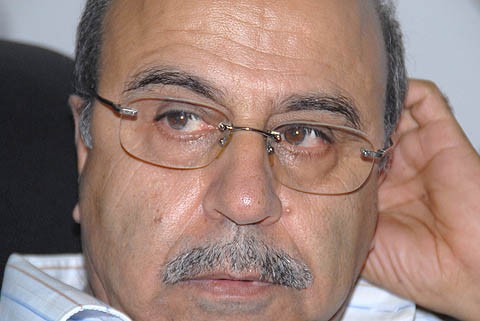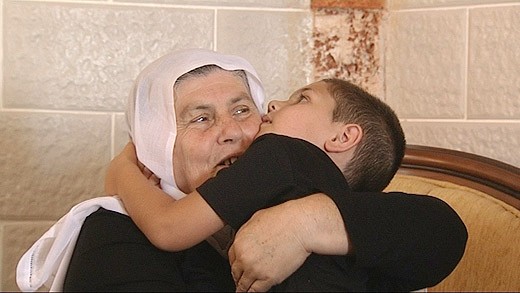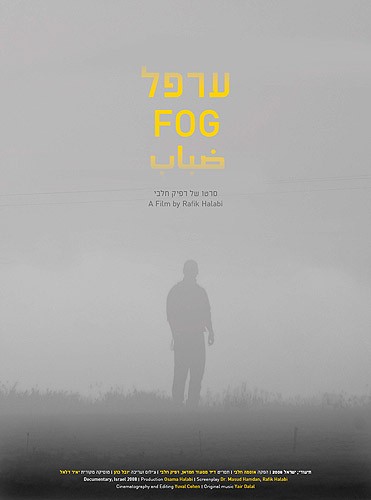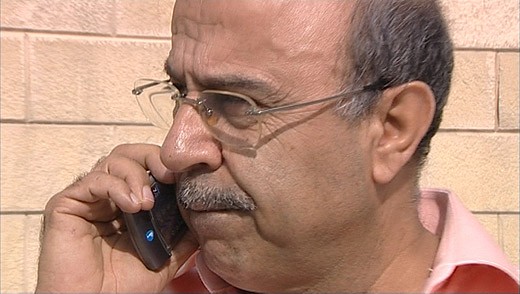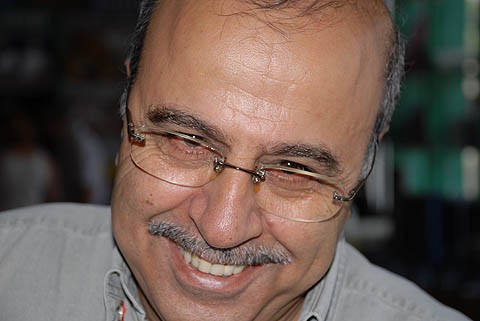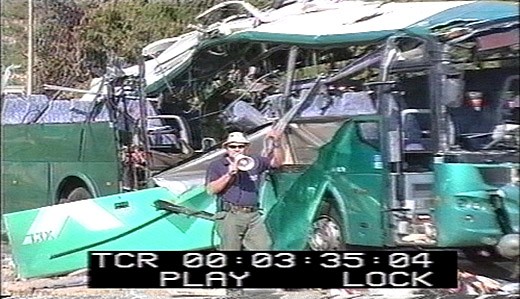A fascinating story of bereavement and mysticism, FOG tells of the quest to unravel the fate of a missing soldier. First Sergeant Mu’in Halabi disappeared at the beginning of the Yom Kippur War during an abortive IDF attempt to conquer Mount Hermon from the Syrians in October 1973. Two weeks later the IDF announced that Mu’in’s body had been found. A casket was buried in Mu’in’s hometown, the Druze village of Daliat el-Carmel. A month after the battle for the Hermon, a child was born in the Galilean village of Mrar. At the age of four, this child declared that he was the reincarnation of Mu’in, and, indeed, was able to relate almost everything about him. But in 1985 inhabitants of Daliat el-Carmel testified to having heard Mu’in speak on the Syrian State Radio. Veteran newsman, Rafik Halabi set out on a journey into time, memory, the Druze religion, and harsh Israeli realities in an attempt to uncover what lies behind this multi-layered story or, put more directly, whether Mu’in Halabi is alive
Synopsis
A fascinating story of bereavement and mysticism, FOG tells of the quest to unravel the fate of a missing soldier. First Sergeant Mu’in Halabi disappeared at the beginning of the Yom Kippur War during an abortive IDF attempt to conquer Mount Hermon from the Syrians in October 1973. Two weeks later the IDF announced that Mu’in’s body had been found. A casket was buried in Mu’in’s hometown, the Druze village of Daliat el-Carmel. A month after the battle for the Hermon, a child was born in the Galilean village of Mrar. At the age of four, this child declared that he was the reincarnation of Mu’in, and, indeed, was able to relate almost everything about him. But in 1985...
Festivals
- Shanghai TV Festival, China 2009
- Int'l TV festival Bar Montenegro, 2008
- Jerusalem Int'l Film Festival – The Wolgin Awards Competition, 2008
Press & Links:
In This Life Time: A New Film by Rafik Halabi FOG,
Rafik Halabi's new documentary film deals with death and reincarnation. Yehuda Wonderblatt, an old fan and a well known skeptic, saw the film last night at the premiere.
I arrived at the screening of Rafik Halabi's new film full of doubt and suspicion. There was something shady about the combination of reincarnation and documentary film. On the other hand, my familiarity with Halabi's work convinced me that we are not talking about a charlatan either. So in the end, when the lights were dimmed I decided to put aside everything that "the guide to skepticism" had told me – at least for an hour or so.
And it was worth it. Already in the first few minutes it becomes clear that this is a film that asks questions – though does not necessarily answer them. "Is Mu'in alive or dead?" Halabi asks himself at the beginning of the film as he sets out on a journey through time and memory.
First sergeant Salam Mu'in Halabi disappeared in the first days of the Yom Kippur War during a futile attempt to try and capture the Hermon Mountain. According to the official IDF report, his body was found a few weeks later in a ravine with his eyes poked out. Rafik,a cousin of the dead soldier, and his neighbor in the village was asked to be the one to notify the family of their son's death.
He politely refused claiming the task was too big for him. A month after his death a child was born in the village of Marar named Roni Ganam. When Roni was four years old he told his parents that he is the reincarnation of Mu'in and could even recount details about his life – including names of his family members and the story of his death. As strange as this might sound, occurrences such as these are near routine in the Druze community. Reincarnation is a central and fundamental aspect of Druze religious life. And even those who are not religious completely believe in reincarnation.
Despite the temptation, Halabi does not set out here to create what could have been perceived as a propaganda film for the Druze religion. It is quite the opposite – during the entire film Halabi offers alternative possibilities, which are also rooted in strong evidence, that Mu'in was actually wounded and captured by the Syrians. So what is the truth? Is Mu'in alive or dead? Halabi refuses to supply a conclusive answer and leaves the whole mystery shrouded in a fog.
This is the place to praise the talented camera work and editing of Yuval Cohen whose restraint is visible in every frame. It is also essential to single out the contribution of Yair Dalal who composed a sound track for the film that is quiet and almost mystical – that penetrates deep into the heart and then open it up to the enigmas that Halabi has presented.
Yehuda Wonderblatt/ NRG Online, July 15th, 2008Festivals
- Shanghai TV Festival, China 2009
- Int'l TV festival Bar Montenegro, 2008
- Jerusalem Int'l Film Festival – The Wolgin Awards Competition, 2008
Educational
- UCLA
- Ithaca College
- Library of Congress
- University of Pennsylvania
